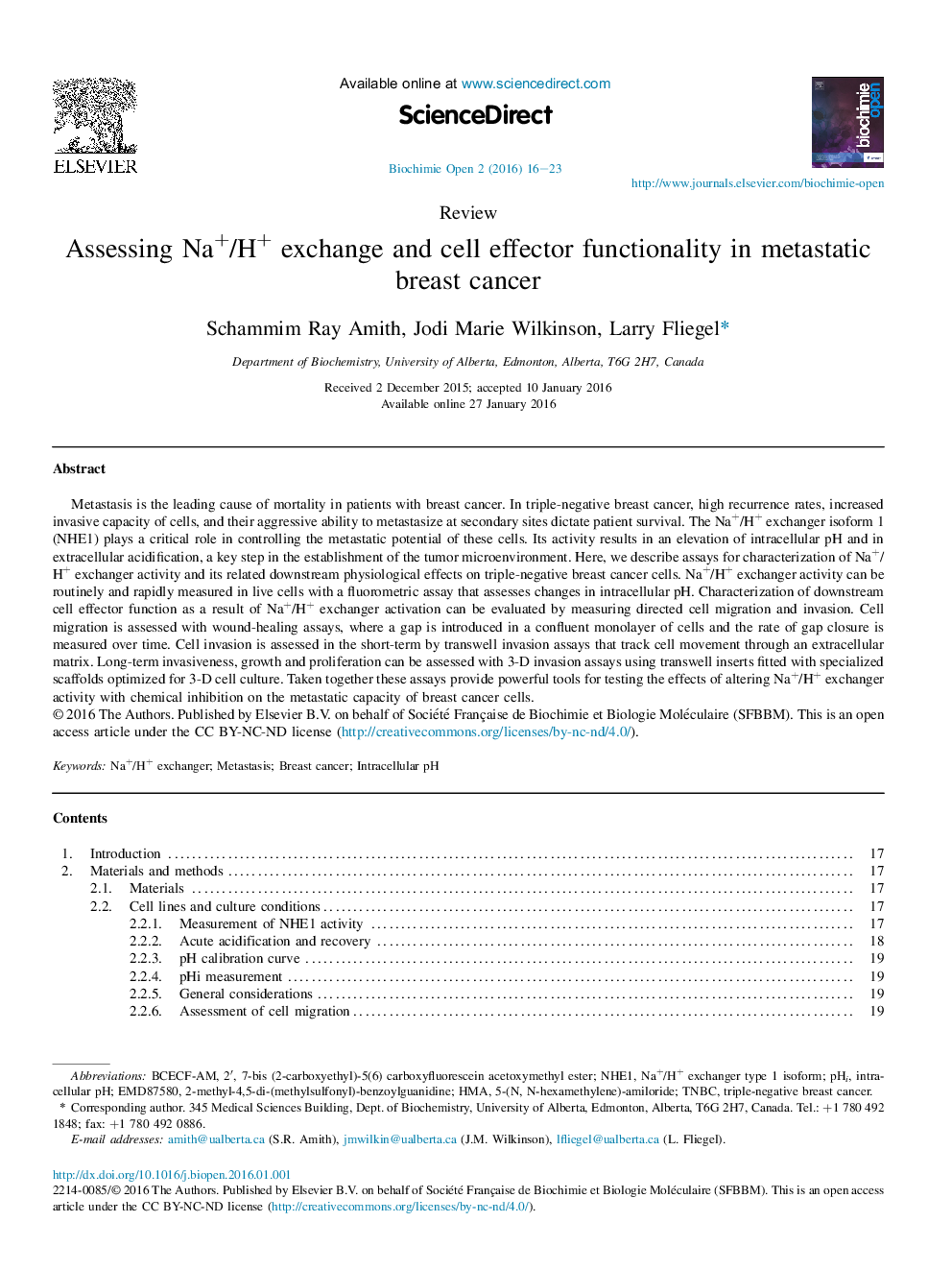| Article ID | Journal | Published Year | Pages | File Type |
|---|---|---|---|---|
| 1953609 | Biochimie Open | 2016 | 8 Pages |
•The Na+/H+ exchanger in breast cancer cells is assayed by rapid fluorometric assay.•Migration of triple negative breast cancer cells is assessed by wound healing.•Cell invasion is measured via transwell 3D invasion assays.
Metastasis is the leading cause of mortality in patients with breast cancer. In triple-negative breast cancer, high recurrence rates, increased invasive capacity of cells, and their aggressive ability to metastasize at secondary sites dictate patient survival. The Na+/H+ exchanger isoform 1 (NHE1) plays a critical role in controlling the metastatic potential of these cells. Its activity results in an elevation of intracellular pH and in extracellular acidification, a key step in the establishment of the tumor microenvironment. Here, we describe assays for characterization of Na+/H+ exchanger activity and its related downstream physiological effects on triple-negative breast cancer cells. Na+/H+ exchanger activity can be routinely and rapidly measured in live cells with a fluorometric assay that assesses changes in intracellular pH. Characterization of downstream cell effector function as a result of Na+/H+ exchanger activation can be evaluated by measuring directed cell migration and invasion. Cell migration is assessed with wound-healing assays, where a gap is introduced in a confluent monolayer of cells and the rate of gap closure is measured over time. Cell invasion is assessed in the short-term by transwell invasion assays that track cell movement through an extracellular matrix. Long-term invasiveness, growth and proliferation can be assessed with 3-D invasion assays using transwell inserts fitted with specialized scaffolds optimized for 3-D cell culture. Taken together these assays provide powerful tools for testing the effects of altering Na+/H+ exchanger activity with chemical inhibition on the metastatic capacity of breast cancer cells.
